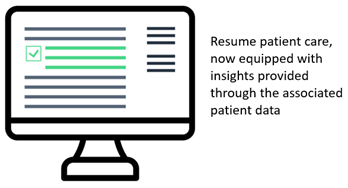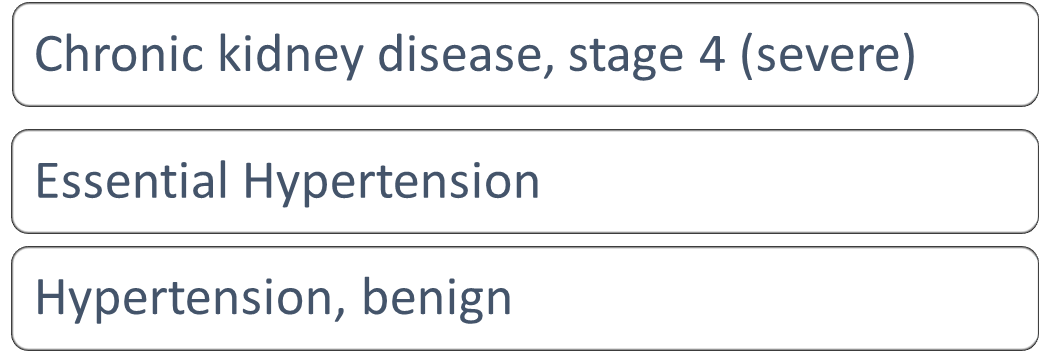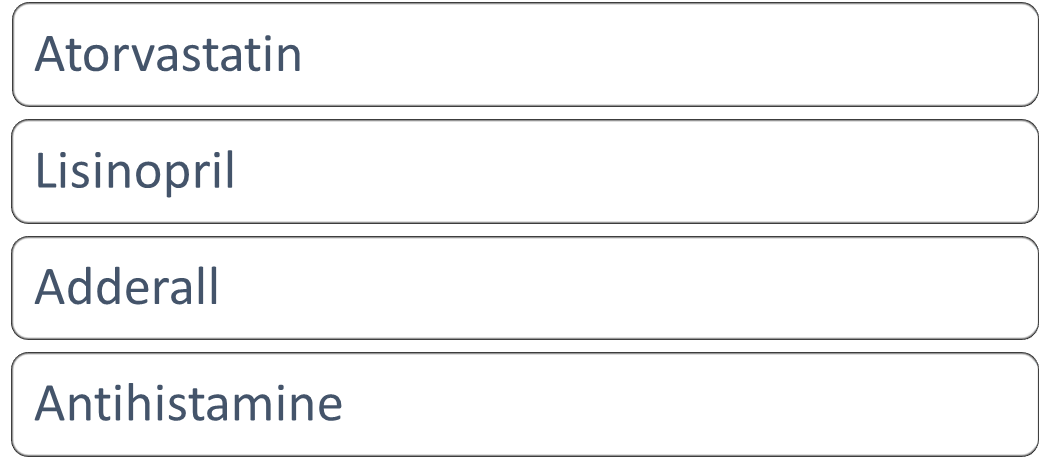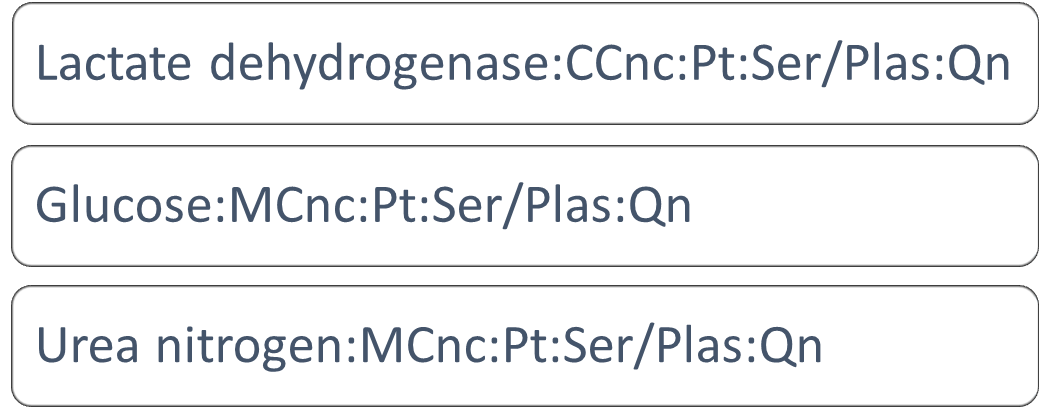Associate
In this tutorial, we will employ the Problem-Oriented Filtering API to link conditions on the patient problem list to relevant lab values and medications.
This capability is licensed under IMO Core.
What problem can you address with this API?
Electronic health records (EHRs) are designed to be compartmentalized. Although everything has its place, providers are tasked with searching for the data needed to guide their decisions around patient care. To reduce the provider’s clicks and cognitive load, the API can organize patient lab values and medications in the context of the problem list by linking them to problems for which they may be relevant. This action gives providers a complete, insightful view of a patient’s medical issues.
The API brings relief to the provider’s EHR workload:


Setup
Start with the relevant EHR information required to meet your data needs.
List examples:
Problem List

Medication List

Lab List

Authentication
To call the Problem-Oriented Filtering endpoint, use the access token obtained from our OAuth2 authorization server.
How to call the Problem-Oriented Filtering API
To identify and associate medications and lab values, you will call the Problem-Oriented Filtering API using the requests demonstrated below.
Supported Code System for Medications: rx_norm and lexical_code
- Associate Medications
Description: Match medications to health conditions in the problem list
Request:
curl --location --request POST 'https://api-sandbox.imohealth.com/problemlistmanagement/problems/associate-medications' \
--header 'Authorization: {{UPDATE_BEARER_TOKEN_HERE}}' \
--header 'Content-Type: application/json' \
--data-raw '{
"problems": [
{
"id": "1",
"lexical_code": "30422"
},
{
"title": "NOT A PROBLEM"
},
{
"id": "3",
"title": "Chronic kidney disease, stage 4 (severe)"
},
{
"id": "4",
"title": "Adderall"
},
{
"id": "5",
"title": "Antihistamines"
}
],
"Medications": [
{
"id": "20",
"code": "1158285"
},
{
"id": "21",
"code": "314077"
},
{
"id": "22",
"title": "NOT A MEDICATION"
},
{
"id": "23",
"code": "859185"
}
]
}'
Response:
{
"problems": [
{
"id": "1",
"lexical_code": "30422",
"lexical_title": "Essential hypertension",
"medications": {
"rx_norm": [
{
"code": "314077",
"title": "Lisinopril 20 MG Oral Tablet"
}
]
}
},
{
"id": "5",
"lexical_code": "714447",
"lexical_title": "Antihistamine adverse reaction",
"medications": {
"rx_norm": []
}
}
],
"unrelated": {
"medications": [
{
"id": "23",
"title": "",
"code": "859185"
}
]
},
"unmatched": {
"medications": [
{
"id": "22",
"title": "NOT A MEDICATION"
}
],
"problems": [
{
"id": "4",
"title": "Adderall"
}
]
}
}
Summary: Associate Medications
- You sent a call to the Problem-Oriented Filtering API with a list of problems and a list of medications.
- The API handled the request to link medications to the problem list. The API responded with a filtered list of problems now associated with the given medications.
- The “unmatched” problem response represents problems and medications that we couldn't match. The “unrelated” problems represent problems and medications found to be unrelated to each other.
- You can now see the medications associated to the problem list – ex: “Lisinopril 20 MG Oral Tablet” is linked to “chronic kidney disease, stage 4 (severe)."

- Associate Lab Results
Description: Search for lab values, match results to the problem list
Request:
curl --location --request POST 'https://api-sandbox.imohealth.com/problemlistmanagement/problems/associate-labs' \
--header 'Authorization: {{UPDATE_BEARER_TOKEN_HERE}}' \
--header 'Content-Type: application/json' \
--data-raw '{
"problems": [
{
"id": "1",
"lexical_code": "30422"
},
{
"title": "NOT A PROBLEM"
},
{
"id": "3",
"title": "Chronic kidney disease, stage 4 (severe)"
},
{
"id": "4",
"title": "Hypertension"
},
{
"id": "5",
"title": "Hypertension, benign"
}
],
"labs": [
{
"id": "10",
"code": "2345-7"
},
{
"id": "11",
"code": "3094-0"
},
{
"id": "12",
"title": "NOT A LAB RESULT"
},
{
"id": "13",
"code": "2532-0"
},
{
"id": "14",
"code": "28542-9"
}
],
"specialty_category_code": "string"
}'
Response:
{
"problems": [
{
"id": "3",
"lexical_code": "1682577",
"lexical_title": "Chronic kidney disease, stage 4 (severe)",
"labs": {
"loinc": [
{
"code": "2345-7",
"title": "Glucose:MCnc:Pt:Ser/Plas:Qn"
},
{
"code": "2532-0",
"title": "Lactate dehydrogenase:CCnc:Pt:Ser/Plas:Qn"
},
{
"code": "3094-0",
"title": "Urea nitrogen:MCnc:Pt:Ser/Plas:Qn"
}
]
}
},
{
"id": "1",
"lexical_code": "30422",
"lexical_title": "Essential hypertension",
"labs": {
"loinc": [
{
"code": "2345-7",
"title": "Glucose:MCnc:Pt:Ser/Plas:Qn"
},
{
"code": "2532-0",
"title": "Lactate dehydrogenase:CCnc:Pt:Ser/Plas:Qn"
},
{
"code": "3094-0",
"title": "Urea nitrogen:MCnc:Pt:Ser/Plas:Qn"
}
]
}
},
{
"id": "4",
"lexical_code": "86491",
"lexical_title": "Hypertension",
"labs": {
"loinc": [
{
"code": "2345-7",
"title": "Glucose:MCnc:Pt:Ser/Plas:Qn"
},
{
"code": "2532-0",
"title": "Lactate dehydrogenase:CCnc:Pt:Ser/Plas:Qn"
},
{
"code": "3094-0",
"title": "Urea nitrogen:MCnc:Pt:Ser/Plas:Qn"
}
]
}
},
{
"id": "5",
"lexical_code": "194830",
"lexical_title": "Hypertension, benign",
"labs": {
"loinc": [
{
"code": "2345-7",
"title": "Glucose:MCnc:Pt:Ser/Plas:Qn"
},
{
"code": "2532-0",
"title": "Lactate dehydrogenase:CCnc:Pt:Ser/Plas:Qn"
},
{
"code": "3094-0",
"title": "Urea nitrogen:MCnc:Pt:Ser/Plas:Qn"
}
]
}
}
],
"unrelated": {
"lab_results": [
{
"id": "12",
"title": "NOT A LAB RESULT",
"code": "13950-1"
},
{
"id": "14",
"title": "",
"code": "28542-9"
}
]
},
"unmatched": {
"problems": [
{
"id": "a2Xx0CD",
"title": "NOT A PROBLEM"
}
]
}
}
Summary: Associate Lab Values
- You sent a call to the Problem-Oriented Filtering API with a list of problems and a list of labs.
- The API handled the request to link lab values to the problem list. The API responded with a filtered list of problems now associated with the given labs.
- The “unmatched” problem response represents problems and labs that we couldn't match. The “unrelated” problems represent problems and labs found to be unrelated to each other.
- You can now see the labs associated to the problem list – ex: "chronic kidney disease, stage 4 (severe)" is linked to "Glucose:MCnc:Pt:Ser/Plas:Qn."
